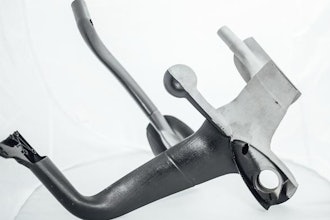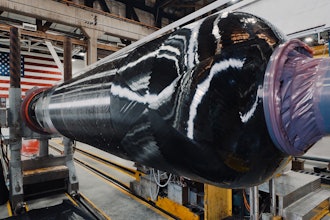
New data and computing capabilities, along with the introduction on the factory floor of innovations such as artificial intelligence, automation and robotics, additive technology, and human-machine interaction are set to change the nature of manufacturing. According to a McKinsey study, “digital-manufacturing technologies will transform every link in the manufacturing value chain”. This includes everything from R&D, supply chain and production to marketing, sales and aftermarket services.
Digital connectivity among industrial assets, different departments within organizations as well as between a company and its customers, has the potential to unlock great value for all involved. Yet while it is well known that manufacturing generates more data than most sectors, few companies are truly harnessing it.
The same McKinsey study says that “one oil-and-gas company, for example, discards 99 percent of its data before decision makers have a chance to use it.” For those familiar with IioT, this is nothing new. The internet of things remains a continuously advancing horizon.
In a recent study of service leaders at manufacturing and services businesses conducted by The Service Council (TSC), 30 percent of respondents strongly agreed that it was important to become a digital business, while 100 percent agreed that the digitization of the service industry is something worth exploring in the near future. Bottom line, these reports - as well as recent conversations with aftermarket leaders in the equipment manufacturing vertical - show that manufacturers are taking a more comprehensive view of what being a digital business means.
Furthermore, this process seems to go beyond their internal operations to incorporate the experience that is being delivered to their customers. When implemented correctly, digital transformation will allow manufacturers to move past traditional reactive service efforts, and launch proactive aftermarket engagement programs that can help create customers for life.
One other thing these leaders have in common is the fact that their organizations are still working on fine tuning their digital strategies, and have not yet identified all the resources and tools necessary to ensure a successful transformation.
Identifying a single, generally applicable definition and set of parameters for digital transformation is no easy task. Below are some of the definitions from service leaders collected by TSC in their report:
- “Radically change the way we service our clients by creating new business models which utilize the latest technology to transform the customer experience.”
- “To us it means the utilization of digital technology to become more transparent to our clients, to better educate our team, and to create analytics that can better operate the systems we maintain and install.”
- “It means having the ability to create and deliver more customer value than can be attained without technology. It also means being able to better quantify the real value of services that are often simply implied.”
The End Goal
Manufacturers who embark on the journey of digitizing their internal practices and processes should have one goal in mind: creating value for their customers. While all the leaders surveyed believe in the importance of a digital innovation strategy, some are reluctant to accept it or do something about it today.
Most of them agree that their organizations simply don’t invest enough time and resources implementing digital initiatives. There seems to be a problem in prioritizing digital transformation initiatives whose goals and success metrics are either not fully understood or poorly communicated within the organization.
Unfortunately for the manufacturing industry, change is coming whether they’re ready for it or not. Customers will soon (if they haven’t already) expect, and in certain cases require, consumer-like experiences driven by data and executed digitally. Companies who fail to adapt and innovate will start seeing more drifting customers, reduced recurring revenue from aftermarket efforts, and an overall loss of connectivity and engagement with their installed base.
We feel our AI-driven platform Entytle Insyghts is solving this problem for the industrial aftermarket by leveraging unconnected data sources to provide actionable insights. But implementing such a solution requires service leaders to embrace a certain degree of digital transformation.
So, the question remains: can manufacturers afford not to embrace it?
Vivek Joshi is the CEO and Founder of Entytle, a Palo Alto, CA-based company that helps B2B manufacturers improve customer loyalty and lifetime value.





















